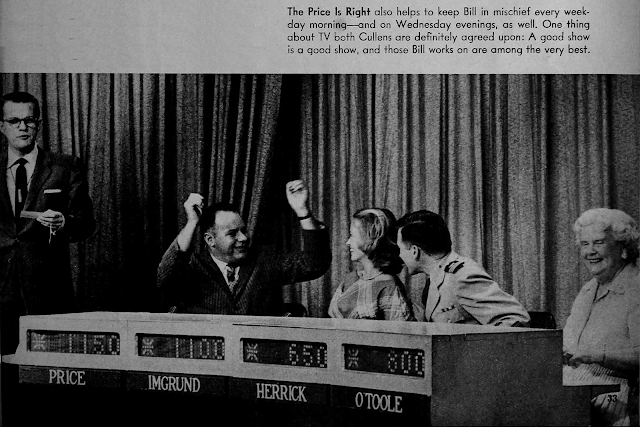Tex Avery’s fascination with long shots of a little insect on a stage goes back to his Warners Bros. days in
Hamateur Night (1939). He featured fleas in other films but when he gets to
The Flea Circus (1954), he combines the idea with the mass procreation gag that ended
Little Johnny Jet, Bill Thompson’s Droopy voice and the song “Clementine” that appeared in
Magical Maestro. In other words, a lot of Avery ideas are at play here (a muffled sound gag in this cartoon was further explored in his next short,
Dixieland Droopy).
One thing that’s unique to
The Flea Circus is the design of Fifi, the little French girl flea who steals the heart of Pepito the Clown flea (who finally wins her by saving her life). My assumption has been that Ed Benedict was responsible but there’s no design or layout screen credit in this cartoon. Fifi’s involved in a neat dance scene to the tune of
Applause by Ira Gershwin and Burton Lane, lifted right off the soundtrack of the MGM musical
Give a Girl a Break (1954).
Here are some of Fifi’s poses, with the chorus line in the background.








You’ll notice Fifi and the chorus aren’t in step and aren’t always singing at the same time. They catch up to each other every once in a while. During this scene, Fifi may move from one frame to the next then hold. The chorus may move in a different frame or the same one. It means their actions aren’t always in sync. I didn’t notice until writing this post and froze each frame.
Here’s what I’m talking about. This is one second of animation, slowed down. Only once are all characters held for two frames, everything else is on ones with Fifi, or the chorus, or both, moving. All the characters start out in the same position.

Did Mike Lah animate this scene? He seems to have done a number of dance numbers at MGM. Walt Clinton, Bob Bentley and Grant Simmons are the other credited animators.



















































